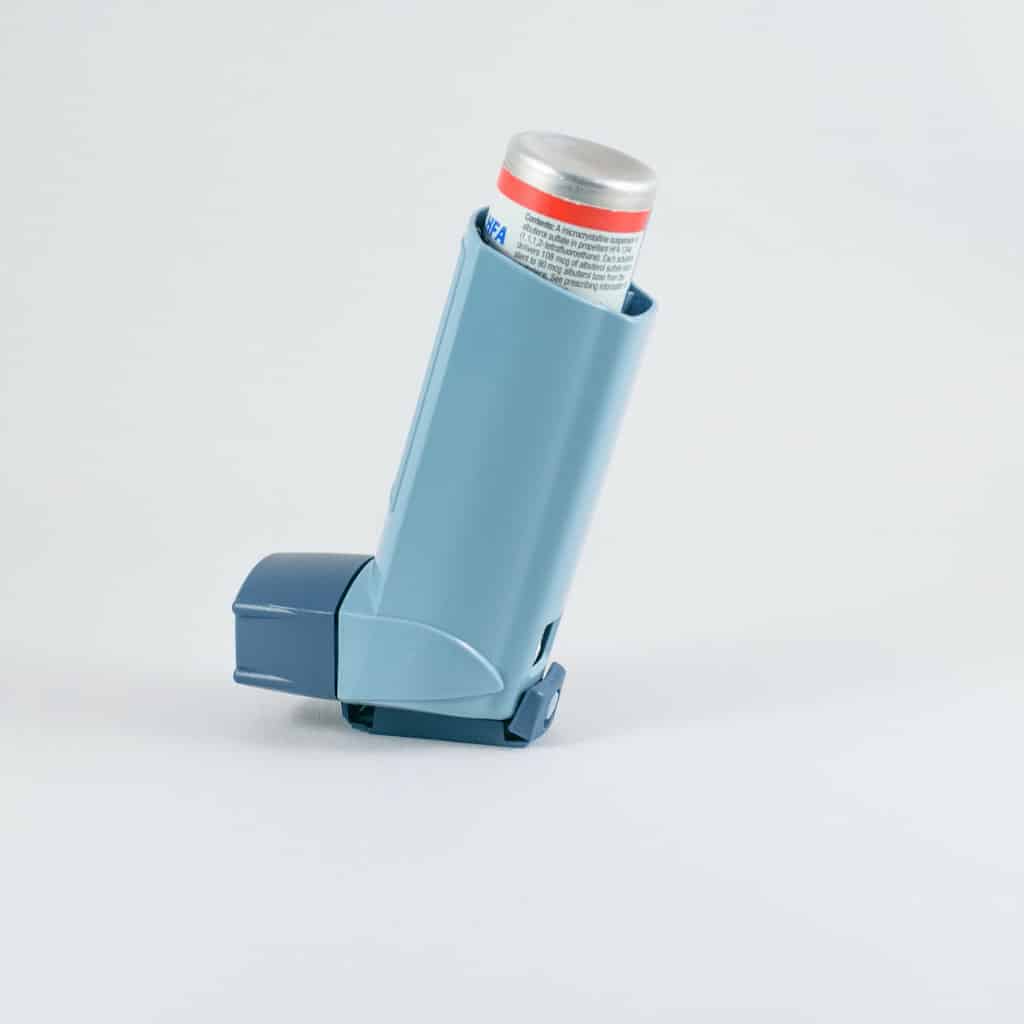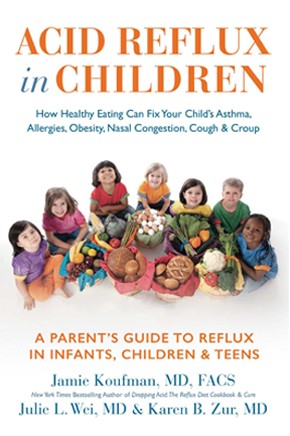
Think You Have Asthma? It’s Probably Reflux!
At-A-Glance
- Asthma affects 25 million Americans at a cost of $80 billion per year. However, asthma is a very commonly misdiagnosed condition – most people with “asthma” don’t actually have it.
- Symptoms that are often thought of (and diagnosed as) asthma are caused by acid reflux, specifically LPR or respiratory reflux. Contrary to popular belief, most acid reflux doesn’t involve any heartburn.
- If you think you have asthma, ask yourself this: “During an asthma attack, do I have more trouble getting the air IN or OUT.” If this answer is IN, that strongly indicates reflux.
- True asthma is associated with trouble getting air OUT, usually with wheezing. Did I just blow your mind?
A Lot of People Think They Have Asthma
According to the CDC, more than 25 million Americans have asthma – 1 in 13 of us. African-American children are disproportionately affected, and the total asthma-related costs of doctors, hospitals, and medications are more than $80 billion per year.
The $80 billion question is how many of these asthma diagnoses are accurate, versus what healthcare providers call “pseudo-asthma,” which is caused by acid reflux. When you hear how common this is, you’re going to be shocked.
Do I Have Asthma?
An accurate asthma diagnosis starts with one simple question: “When you have trouble breathing during an “asthma” attack, do you have more difficulty getting air IN or OUT?”
Difficulty inhaling IN is never asthma. True asthma is always difficulty exhaling OUT.
The anatomy of our airway (breathing passages) is the explanation for the IN vs. OUT / reflux vs. asthma difference.
- With reflux, it’s difficult to get air IN because the airway obstruction occurs at the level of the larynx (voice box). Its receptors act like switches and close the vocal cords, which results in trouble breathing in. This type of airway noise is similar to children with croup or whooping cough who may make loud, even crowing, sounds when breathing in.
- With asthma, it’s difficult to get air OUT because the airway obstruction occurs in the large breathing tubes (bronchi) in the lungs. As these tubes become narrowed – perhaps by an allergic reaction – they’re also compressed by lungs that are full of air. That results in prolonged exhalation (trouble breathing out), sometimes with audible wheezing.
Clinical Observations Over 40 Years
I’ve seen over 100,000 patients in the 40 years I’ve been in medical practice, and my focus is on acid reflux. It’s important for anyone who thinks they have asthma to know this:
- Approximately 80% of patients diagnosed with asthma don’t have it.
- For those patients, either LPR /silent reflux or respiratory reflux is usually the correct diagnosis.
- Difficulty breathing IN is never asthma. Indeed, patients diagnosed with asthma who have difficulty breathing IN don’t usually get better with asthma treatment. They do get better, however, when their reflux is controlled.
Unfortunately, this IN vs. OUT distinction is not understood by most doctors.
About LPR: Affecting 80% of people with reflux, LPR (laryngopharyngeal reflux) literally translates as “backflow into the voice box and throat.” LPR is often also called silent reflux because LPR-sufferers (without heartburn or indigestion) may not know that they have it. Also, for many people with it, LPR may be silent because it happens during sleep and does not wake them.
About RR: Respiratory reflux is a relatively new term that I coined to hopefully replace LPR. RR is a broader, more accurate and intuitive term for LPR that includes breathing and lung problems like asthma, COPD, chronic bronchitis and cough. RR occurs when acid reflux comes into any part of the respiratory system, and it is very common.
Reflux and True Asthma are Related, Too
Reflux is responsible for triggering true asthma attacks. Research has shown that reflux is responsible for triggering 77% of true asthma attacks. That’s more than allergies and all other causes combined.
Looking Forward
If my experience is representative and 80% of people who think they have asthma actually have pseudo-asthma… think about what that means.
Instead of spending $80 million on asthma annually, it should be $16 billion.
Instead of 25 million Americans with asthma, it should be 5 million.
Most importantly, those 20 million Americans with a correct diagnosis (of acid reflux) would know how to heal themselves.
The usual treatment for reflux is with purple pills called PPIs (proton pump inhibitors) like Nexium and Prilosec. PPIs are just bandaids and they are dangerous – they can kill. It is important to point out that PPIs never actually cure reflux. However, reflux can be truly cured with natural remedies ― in large part with an anti-reflux healthy diet and lifestyle.
It’s important to advocate for yourself and commit to trying these lifestyle choices to treat acid reflux, even though they’re challenging.
I have written a best-selling book on the self-diagnosis and self-management of acid reflux. However, here are the most important pieces of advice I can offer:
- No eating or drinking within five hours of going to bed
- Sleep on an incline no less than 45-degrees (gravity helps)
- Eat five small meals
- No fried or high-fat foods
- No alcohol, chocolate or soft drinks (including fruit juice) of any kind
- Take Pepcid 20 mg. before each meal and before bed
- Take a tablespoon of Gaviscon Advance Aniseed after each meal and before bed (not available in stores in the U.S., but available online)
- Drink alkaline water as much as you conveniently can, especially after more acidic food/drink – bottled alkaline water is convenient, or buy an alkaline pitcher (and test it with pH paper or a pH tester to make sure it’s 8.0 or greater)
If you’ve read one of my books and you’re following this guidance and you still need help, you can book a consultation with me.
P.S. – Why Doesn’t My Doctor Know About This?
I get asked this all the time: “Why doesn’t my doctor know about this?!”
My primary research on acid reflux and chronic cough has been available for decades. Dropping Acid has been a best-seller for a decade. And I was on TV and quoted in mainstream media for many years. But the medical community remains virtually unaware that LPR (laryngopharyngeal reflux), today often called silent reflux or respiratory reflux (all terms I coined), is a major cause of respiratory issues and chronic cough. In addition, neurogenic cough seems almost never properly diagnosed.
Thousands of my patients have been on a merry-go-round of specialists… a GI doctor, an ENT, an allergist, an asthma specialist. They’ve had tens of thousands of dollars of tests, prescriptions for medications that never could have helped them, and their respiratory issues never improved.
The problem in the U.S. is over-specialization. Most Americans mistakenly believe that they must see specialists for almost every medical problem. What people don’t know is that specialists determine what services insurance will pay the most for, and they can choose to deliver those expensive services… even for patients who don’t need them! The idea of dividing the body up into small, non-overlapping, anatomic areas makes no sense. The respiratory and digestive systems are intimately connected, and specialists do not seem to know that.
Imagine building a house by allowing each workman to do his own thing. The plumber would put a sink in every room. The electrician would install chandeliers on every ceiling. The carpenter would panel every room in luxurious wood. That’s how America’s medical specialist system works.
The evolution of my personal medical practice as an expert in acid reflux that affects the throat and airway (LPR, silent reflux, respiratory reflux – all terms that I coined) helped me see that silent respiratory reflux was ubiquitous. That means it’s all over the place, and it’s likely in almost half of Americans. REFLUX is the single most common cause of “allergies,” “asthma,” “sinus disease,” true sleep apnea, and chronic cough.
Please read up and advocate for yourself, finding solutions that may be elusive through traditional care channels.










